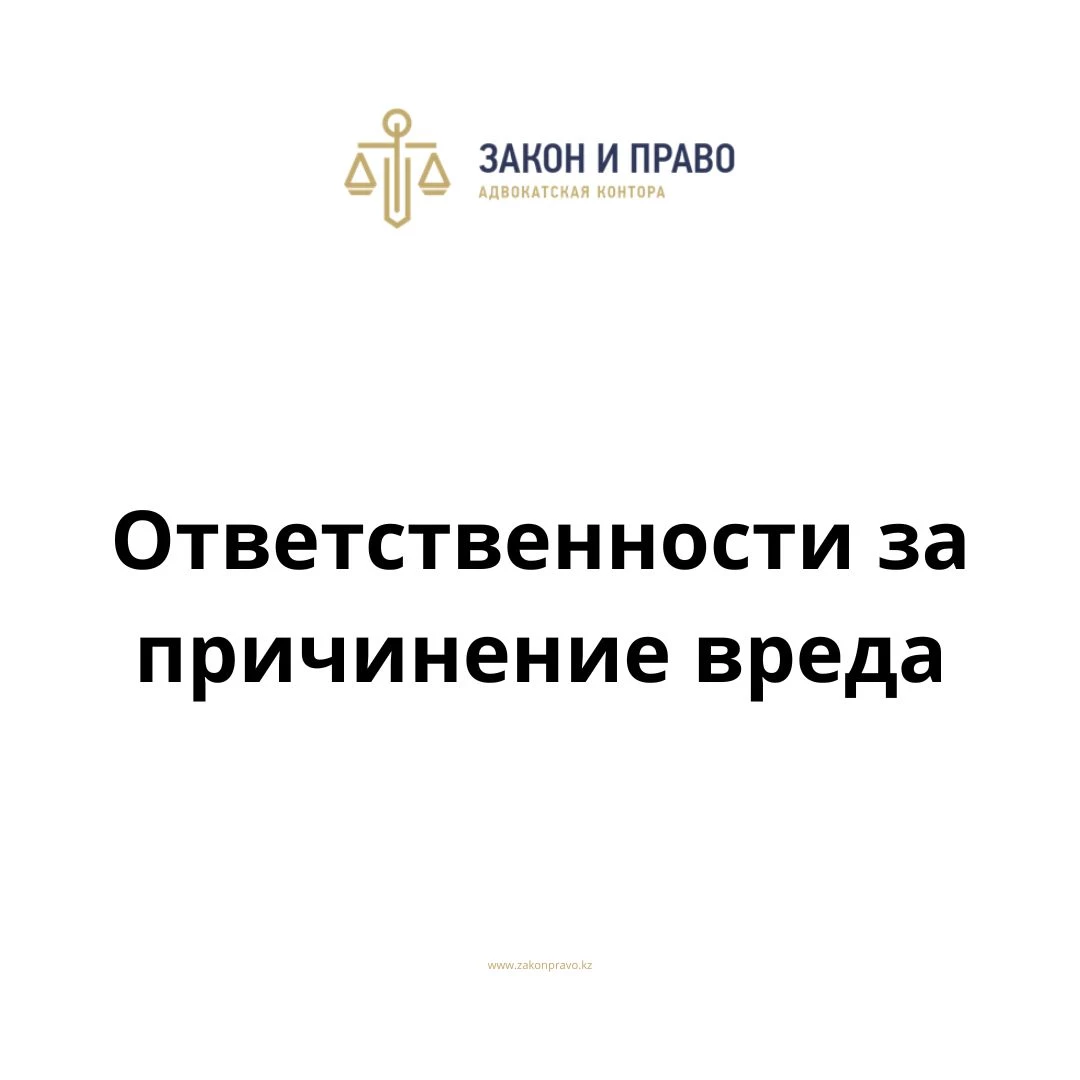Liability for causing harm
Articles 917 of the Civil Code of the Republic of Kazakhstan define the general grounds for liability for harm," namely:
Damage (property and (or) non-property) caused by unlawful actions (inaction) to property or non-property benefits and rights of citizens and legal entities is subject to compensation by the person who caused the damage in full.
By legislative acts, the obligation to compensate for harm may be imposed on a person who is not the causer, and a higher amount of compensation may also be established.
The person who caused the damage is exempt from compensation if he proves that the damage was caused through no fault of his own, except in cases provided for by this Code.
The damage caused by lawful actions is subject to compensation in the cases provided for by this Code and other legislative acts.
Thus, this norm is a general norm of civil legislation that defines the grounds for liability for harm.
Obligations arising as a result of causing harm are non-contractual obligations, since their subjects (the harm-doer and the victim) are not in a contractual relationship, and the obligation to compensate for damage is not related to the violation of the contract.
Non-contractual obligations also include obligations arising from injury to health in the performance of work duties, since the employment contract does not affect the civil nature of the obligation, it mediates an employment relationship, and not a relationship for compensation of damage.
Non-contractual obligations include other obligations related to damage to health or causing death, since life and health are protected by law.
Contractual obligations are based on a legitimate legal fact - a civil law contract, and non-contractual obligations arise from the unlawful infliction of harm (from a tort), therefore, liability under Article 917 of the Civil Code occurs in the presence of illegality of behavior, the presence of harm, and the presence of a causal relationship between them, the fault of the harm-doer.
Harm may be caused to the person or property of a citizen or a legal entity. Illegality of conduct (action or omission) means that it contradicts the norms of law. In contractual relations, illegality is expressed in the inconsistency of behavior with the terms of the contract and the relevant legal norms. In non–contractual obligations, misconduct violates legal relationships in which subjective rights such as property rights, the right to life, health, etc. are enshrined in law. Illegal actions can often constitute a crime or an administrative offense.
The harm caused by lawful actions is not subject to compensation - causing harm in a state of necessary defense and in a state of extreme necessity.
Attention!
Law and Law Law Law draws your attention to the fact that this document is basic and does not always meet the requirements of a particular situation. Our lawyers are ready to assist you in legal advice, drawing up any legal document suitable for your situation.
For more information, please contact a Lawyer / Attorney by phone: +7 (708) 971-78-58; +7 (700) 978 5755, +7 (700) 978 5085.
Attorney at Law Almaty Lawyer Legal Services Legal Advice Civil Criminal Administrative Cases Disputes Protection Arbitration Law Firm Kazakhstan Law Office Court Cases
Download document
-
Решение суда о взыскании материального и морального вреда
2037 downloads -
Решение суда о возмещении вреда
2036 downloads -
Решение суда о возмещении морального и материального вреда
1998 downloads -
Судебное решение о взыскании причиненного материального ущерба в результате затопления квартиры,
2153 downloads -
Судебный акт о возмещении материального ущерба
2033 downloads -
Судебный акт о возмещении вреда имущественного и неимущественного характера
2031 downloads -
Суудебное решение о взыскании в счет возмещения материального ущерба
1997 downloads


